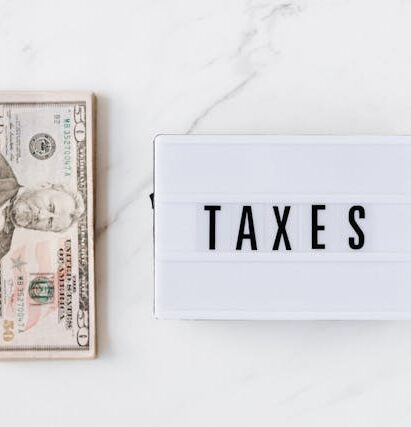Minimum Down Payment For Investment Property In Texas: Evaluating All Options & How To Finance Rental Property Purchases
April 23, 2024
Read MoreIn this detailed guide, we take a deep dive into the nuances of 1031 exchanges, specifically for the state of Texas. Discover how property investors can gain an advantage from this powerful tax-deferral strategy. We’ll look at the types of property investments that qualify for a Texas 1031 exchange and the rules that investors need to know to navigate the process. Read on to learn more.

Key Takeaways:
A 1031 exchange in Texas is a tax-deferral strategy that real estate investors can use to defer capital gains when selling a property if they are reinvesting the proceeds into a similar property. Certain guidelines apply, but this exchange plays a key role in Texas real estate investment as it allows investors to defer taxes on gains in property sales. This enables them to leverage that capital for further investment opportunities.
The key benefit of a Texas 1031 exchange lies in the ability to defer taxes. This can significantly boost your purchasing power and the overall returns you receive on an investment. It is important to understand the rules and requirements specific to Texas, and we can help as your expert investor-friendly real estate agents. If you want to take full advantage of this tax-saving strategy in the state’s vibrant real estate market, come to us.
In Texas, a 1031 exchange is very similar to the process in other states. The process involves selling an investment property then reinvesting the proceeds into a like-kind property. Certain timeframes apply, typically in line with federal guidelines:
Investors are required to strictly adhere to these timelines. The replacement property must meet the like-kind criteria as dictated in Texas laws. ‘Like-kind’ generally refers to properties that have similar characteristics, but you will need to consult with tax and legal professionals with a robust understanding of the Texas regulations. We can help with someone from our professional network.
You will also need proper documentation that complies with Texas tax codes for a successful 1031 exchange. It may sound like a lot of extra work, but it is worthwhile for the valuable tax deferral benefits to maximize your next real estate investment and grow rapidly.
In Texas, 1031 exchange rules follow federal guidelines, though there are some state-specific considerations. The primary rule revolves around reinvesting proceeds from an investment property sale into a like-kind property in order to defer capital gains taxes. Texas doesn’t have a state income tax, though things like rental income are taxable via your federal tax return. With no state income tax, the 1031 exchange process is simpler in Texas than in many other states.
Federal timelines are a key consideration for investors. As mentioned, potential replacement properties must be identified within 45 days, and the acquisition must be completed within 180 days. Texas-specific considerations include:
You should also familiarize yourself with the specific Texas requirements for like-kind properties. Diligence in property selection is crucial. Texas offers tax advantages for real estate investors, but a thorough knowledge of both state and federal rules to be successful with a 1031 exchange in the state.
Texas real estate investment properties can be eligible for a 1031 exchange if they are held for productive use in trade, business, or investment. This includes an array of real estate types, such as:
As an example, an investor in Houston could exchange an apartment building for a shopping mall. Or a ranch owner in rural Texas could exchange land for a portfolio of rental homes in a metro elsewhere in the state.
The key is that the properties involved are held for investment or business purposes rather than personal use. We can advise on this, and our professional network includes tax advisors who can provide specific guidance for you.
In Texas, as in the rest of the United States, strict time limits apply to 1031 exchanges. The first deadline is the identification period, which lasts 45 days from the sale of the relinquished property. Investors have this time to identify potential replacement properties and submit them in writing to the intermediary handling the exchange.
After the identification period, there is the exchange period, which lasts 180 days from the sale of the relinquished property (or the tax filing deadline – whichever comes first). During this time, the investor is required to close on one or more identified properties in order to complete a successful exchange.
There is no room for negotiation on these time limits. Meticulous planning and execution is required, and the exchange can be disqualified if you fail to meet a deadline. The consequences of this would be potential tax liabilities, so it is highly recommended to work with experienced intermediaries and tax advisors to ensure compliance and success.

Texas stands out as a favorable destination for 13031 exchanges because it has a vibrant real estate market and is an investor-friendly state. Characteristics of Texas that are great for real estate investment include:
This is fertile ground for hungry investors, who will benefit from things like no state income tax to enhance their overall returns.
We have a number of success stories from clients in Texas, many of whom leverage 1031 exchanges to upgrade their portfolios, defer capital gains taxes, and optimize cash flow. From commercial investment properties for sale in Houston and Dallas to lucrative residential investments in growing suburbs, Texas is abundant with opportunities.
Our service caters to investors seeking properties in Texas. As investor-friendly real estate agents, and experienced investors ourselves, we can guide you through 1031 exchanges and find valuable investment opportunities all around the state.
Here are the key steps to conduct a 1031 exchange in Texas:
It is absolutely crucial to work with experienced professionals to succeed with a Texas 1031 exchange. Failure to adhere to the timelines will completely unravel your efforts in this landlord-friendly state.
Under the current tax regulations, there is no limit on the number of 1031 exchanges you can do in a single year. However, you should note that each exchange must adhere to all the requirements set forth by the IRS, and this is not always straightforward to achieve. Requirements include:
If you try to do too many at the same time, you may find it difficult to meet all these criteria.
Thus, while there is no limit on the number of exchanges, we recommend that you carefully consider the complexities that would be involved in carrying out multiple exchanges in a short timeframe. Work closely with real estate professionals who can help with meeting your compliance requirements. And be realistic about what you can actually manage in order to maximize the benefits of 1031 exchanges.
When choosing a Texas 1031 exchange company, you should look out for various key qualifications and attributes to ensure a compliant exchange process. Here are some characteristics to look out for in your qualified intermediary (QI):
You should always verify that your QI is properly licensed and accredited. Relevant certifications include Certified Exchange Specialist (CES) or membership of industry organizations like the Federation of Exchange Accommodators (FEA).
It is wide to seek reviews and referrals from other investors who have worked with the same company. This is a good way to gauge their reliability and efficiency. We can make recommendations based on our own experience.
Choosing a 1031 exchange in Austin provides you with several advantages, making it a compelling city for real estate investors. The key advantage in the state is the lack of state income tax, meaning you will retain more proceeds from your property sales for further investment. This boosts your overall returns and encourages investment in Austin’s thriving real estate market.
Taking this advantage, you can tap into Austin’s dynamic economy, booming tech sector, and growing population. These are features that attract property investment, giving the city a major advantage in Dallas vs Austin real estate investment considerations. With a strong job market and rapid population growth, we have seen Austin become a hotspot for hungry investors seeking residential and commercial properties. The city also boasts a high quality of life and a vibrant cultural scene, so it’s a great place to focus your attention and leverage the power of 1031 exchanges for long-term growth and stability in your real estate portfolio.

Careful strategic planning is fundamental to maximizing benefits with a 1031 exchange in Texas. Investors should start by identifying appropriate replacement properties that align with investment goals and timelines. We also recommend that you work with experienced 1031 exchange specialists and tax advisors, as their input will help navigate the complex regulations and ensure full compliance with IRS rules.
Timing is absolutely critical in maximizing your tax deferment benefits. Meticulous planning to adhere to the strict timelines for identifying and closing will ensure you experience the benefits. And you can leverage the lack of a state income tax in Texas to further enhance your potential savings from a 1031 exchange.
Focus on the following:
Learn how to find an investor-friendly real estate agent for the best guidance on leveraging a 1031 exchange in Texas. We can help with this, so please don’t hesitate to reach out.
A 1031 exchange is a mechanism by which you can defer your capital gains taxes when selling a property to maximize your available capital to reinvest in a similar property. There are strict rules to adhere to when you do this.
You have to find a like-kind property with similar characteristics to the one you relinquish. Potential properties must be those held for business or investment purposes, but a wide range of real estate types can qualify.
